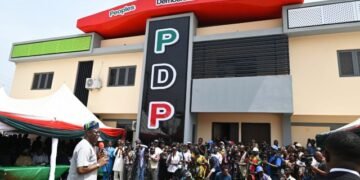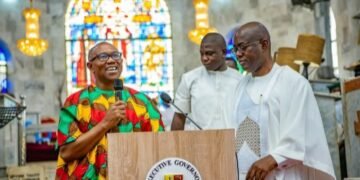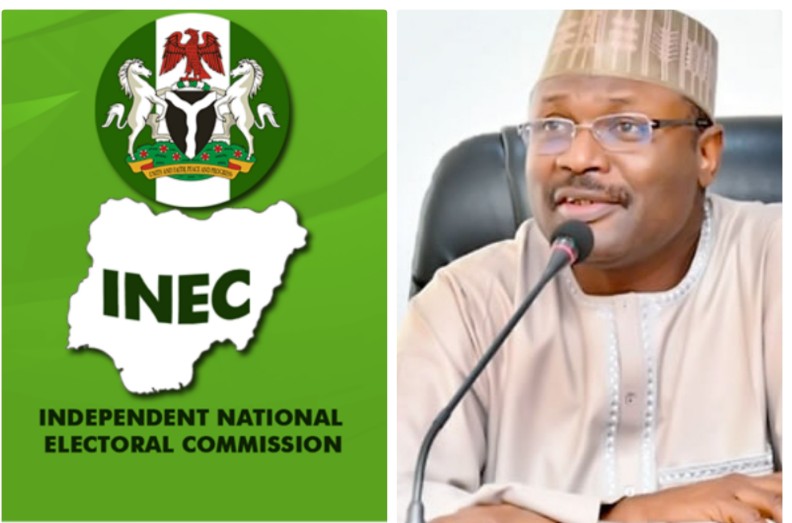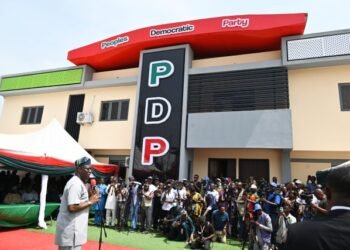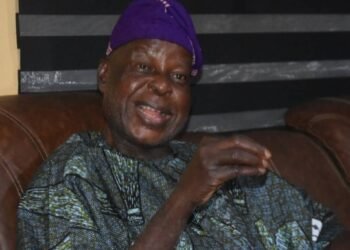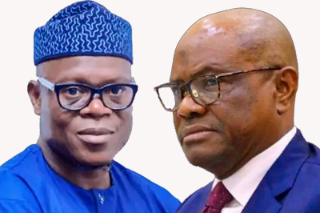Amid heightened tension, the 2023 Presidential and National Assembly election held across the country, last Saturday. Winners and losers alike emerged, savoring the sweetness of their wins and licking their wounds, as applicable.
The Independent National Electoral Commission (INEC), early Wednesday morning, announced the ultimate prize winner. It crowned an old political master strategist, Senator Bola Ahmed Tinubu of the All Progressives Congress (APC), the winner of the presidential election.
The former governor of Lagos State was declared and returned as the president-elect, having trounced his closest competitors, Atiku Abubakar of the Peoples Democratic Party (PDP); Peter Obi, Labour Party (LP) and Rabiu Kwankwaso, New Nigerian People’s Party (NNPP), at the polls.
However, as the election was going on, there were allegations of infractions and deliberate attempts by INEC to disenfranchise the voting populace. Late arrival of electoral officers and election materials, delay in capturing and accreditation, occasioned by failure of the Bi-Modal Voters Accreditation Machine System (BIVAS) dogged the conduct of the election in many polling units.
The 2023 general election is a litmus test for INEC, under the leadership of Professor Mahmood Yakubu. This is more so with the introduction of the BIVAS which intendment was to ensure the credibility and integrity of the elections.
The BIVAS is not, in every sense, a new innovation, having been previously used to conduct the staggered governorship elections held in Ekiti and Osun states, last year.
Some fundamental errors were particularly noticed in the conduct of the governorship election in Osun State, leading to the ongoing litigation threatening the status of the incumbent governor, Senator Ademola Adeleke, as the authentic winner of the 2022 contest.
Preparatory to the 2023 elections, INEC, apparently taking into cognisance the inherent flaws in BIVAS, had embarked upon series of sensitisation programmes across the country on its indispensability to ensuring free, fair, credible and acceptable elections.
It was in the light of the assurance given by INEC that the electorate went to their different polling units, last Saturday, expectantly to cast their votes unhampered by the cumbersome process associated with previous elections in the country.
Alas, hopes and expectations were dashed as INEC failed to live up to expectations in some areas, despite the introduction of BIVAS and other technologies. Problems associated with past elections still manifested last Saturday.
Given the apparent failure of BIVAS at some of the voting centres, the European Union Election Observation Mission (EU EOM) Nigeria 2023, in its preliminary findings, declared that the federal election was characterised by lack of transparency and operational failures.
While it held that the elections took place on the scheduled date, despite prevailing challenges, the EU EOM, in its findings, observed that the operational failures greatly reduced trust in the process and challenged the right to vote.
Barry Andrews, the Chief Observer and member of the European Parliament, who presented the preliminary findings of the EU EOM in Abuja on Monday, said: “Millions of Nigerian voters cast their vote in the Presidential, Senate and House of Representatives elections, despite prevailing challenges.
“However, INEC’s lack of efficient planning in critical stages and effective public communication reduced trust in the process, including on election day.
“The introduction of the BVAS and the INEC Results Viewing Portal (IReV) were perceived as an important step to ensure the integrity and credibility of the elections.
“However, uploading of the results using the BVAS did not work as expected and presidential election result forms started to appear on the portal very late on election day, raising concerns.”
Governor Nyesom Wike of Rivers State, who, along with his wife, was one of victims of the BIVAS glitches, said the failure is an evidence of poor preparedness of INEC for the 2023 elections.
A former president of the country, Chief Olusegun Obasanjo, wrote an open letter to President Muhammadu Buhari, calling for the cancellation and re-conduct of the election in polling units where the discrepancies were quite noticeable.

Obasanjo’s letter has continued to generate mixed reactions. While some people believe that the former president was right in his demands, several others are of the opinion that he was just being mischievous- that he has no moral right to make such a demand, being a partisan elder statesman whose preferred candidate lost out in the presidential election.
Also, two of the major political parties in the election, the PDP and LP, have been vociferous in their call for an outright cancellation of the exercise, accusing INEC of rigging to favour the APC and its presidential candidate, Tinubu.
Again, opinions are divided over the position of the PDP and LP. For some people, the call by the two political parties were in order. Yet, to some others, the PDP and LP are only crying wolves where there was none.
A retired Army General who once served the country both as Chief of Army Staff and Chief of Defence Staff, Alani Akinrinade CFR, GCON, likened the call for the cancellation “of all elections that do not pass the credibility and transparency test” (as demanded by Obasanjo) to another attempt to repeat the June 12, 1993 election debacle.
Beyond the diatribes that attended the call for outright cancellation of the election in the affected polling units, it must be noted that the country has never had any faultless or flawless election. Rather, it has been a subject of continuous reforms in the attempts to get it better.
Observers, both local and international, have variously condemned elections conducted during the Obasanjo administration. The beneficiary of the warped process, the late Umaru Yar’ Adua, in 2007, admitted to the flaws that produced him as the president and proceeded to set up an election reform committee.
The INEC chairman, Professor Yakubu, while reportedly admitting to some of the noticeable flaws, said no to the call for the cancellation of the election.
“This election is far from being perfect, just like many before it, but there is no election in the recent history of this country that has thrown up so much upset like this one…
“I, therefore, say no to cancellation of the results. INEC should run the full course and let the process of redress take over afterwards. We will survive this like every other. Proposing cancellation is defeatist,” he was reported to have said.
The election also received commendations from the West African Elders Forum (WAEF), which was on election mission to the country.
It is made up of former African presidents and leaders, including Goodluck Jonathan (Nigeria); Ernest Bai Koroma (Sierra Leone); John Dramani Mahama (Ghana); Fatoumata Jallo Tambajang (The Gambia); Kadre Ouedraogo (Burkina Faso); Boni Yayi (Republic of Benin) and Erastus Mwencha (former Deputy Chair of the African Union), among others.
The WAEF team, in a statement by Jonathan and Mahama, on Tuesday, commended Nigerians for their resilience and patriotism as displayed during the election. It noted how the electorate defied many challenges to perform their civic duties.
It however admitted: “While the elections were peaceful in a number of places, challenges of delay in arrival of electoral materials, voter suppression, ballot box vandalisation and incidents of violence in some states, created anxiety among citizens who were passionate to cast their ballots.”
Indeed, you don’t throw out the baby with the bath water. More conscientious efforts should be made to ensure the institutionalisation of the process leading to the conduct of credible, free and fair elections that would be acceptable to a larger percentage of the people.
On the issue of procedure and allegations of infractions of the electoral law in the process of collation of results, INEC should thoroughly investigate the concerns raised. It must live up to its responsibility, in accordance with the extant laws guiding the process.
Rather than calling for an outright cancellation of the results of the election in some polling units, those aggrieved should document their grievances and present their claims to INEC, in accordance with the Electoral Act 2022.
The legal option is readily at their beck and call. The aggrieved should arm themselves with their facts and figures and approach the court to seek redress.
All eyes are on INEC; the whole world is waiting and watching how it handles the fallbacks of the last election, emanating largely from the failures attributed to BIVAS.
Professor Mahmood Yakubu and his team must raise the bar, particularly as we await the process of electing state governors and members of the state Houses of Assembly, next week Saturday.
•Falade, Publisher, Newscoven.ng and public affairs analyst, is based in Ibadan, Oyo State.

